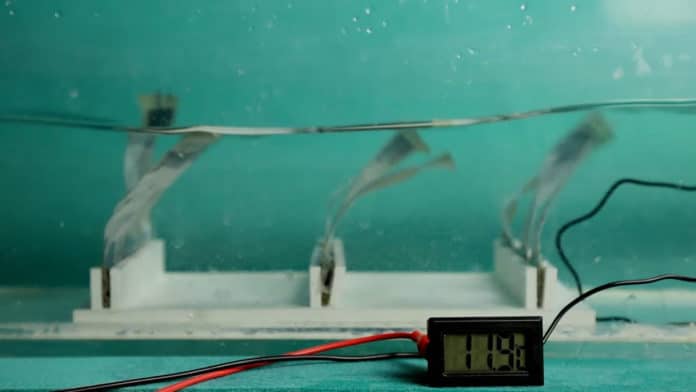In many coastal areas, the networks of underwater sensors collect information on water currents, tides, and water quality on a daily basis, with the aim of helping navigation and monitoring the health of the environment. This sort of “marine internet of things” is powered mostly by batteries that have to be replaced from time to time, which is time-consuming and expensive. Wind and solar power could be used, but they aren’t suitable for underwater applications.
Beneath the ocean surface, marine algae or seaweed wave back and forth with the flow of water. Now, researchers at China Dalian Maritime University used the same movement in an underwater device to harness the ocean’s continuous movement as a renewable energy source.
They have developed flexible power generators that mimic the way seaweed sways to efficiently convert surface and underwater waves into electricity to power marine-based devices. The Triboelectric nanogenerators (TENGs) rely on surfaces coming in contact to produce static electricity.
To make the triboelectric surfaces, the researchers sandwiched a thin layer of porous sponge material between a couple of 1.5-inch by 3-inch strips of two different polymers coated in conductive ink. The sponge created a thin air gap between the strips, and the whole unit was sealed with waterproof tape.
In tests, as the resulting TENGs were moved up and down in the water, they bent back and forth, generating electricity. When the researchers put the TENGs in water pressures similar to those found underwater in coastal zones, they found that the air gap between the two conductive materials decreased. However, the devices still generated a current at 100 kPa of pressure.
Finally, the researchers used a wave tank to demonstrate that multiple TENGs could be used as a mini underwater power station, supplying energy for either a thermometer, 30 LEDs, or a blinking miniature lighthouse LED beacon. The researchers say their seaweed-like TENG could reduce the reliance on batteries in coastal zones, including for marine sensors.
